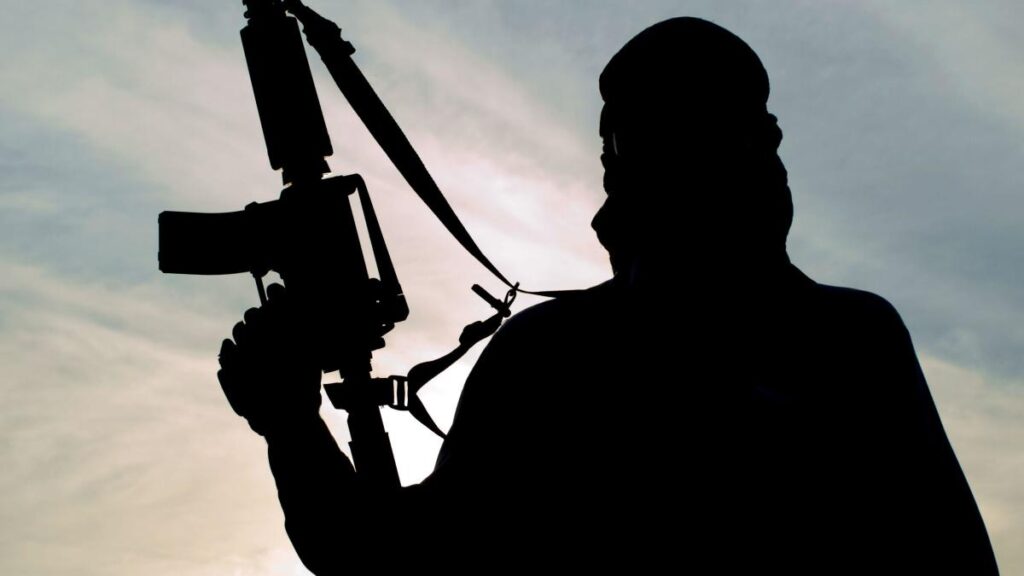Bekele’s sister is one of dozens of students from Ethiopia’s Derbak University who have been missing for a week. At the end of the academic year, she took a bus home but never reached her destination.
No one in the family had been able to contact her, so when his mobile phone lit up and told Bekele he had an incoming call from his sister, he quickly pressed accept. The names of people the BBC spoke to for this article have been changed for security reasons.
He was greeted by the voice he had longed to hear, but then an unfamiliar male voice spoke up, telling him he would have to pay 700,000 Ethiopian birr (12,000 dollars; £9,400) if he ever wanted to see his sister again.
Dozens of bus passengers, mostly students, were kidnapped by gunmen last Wednesday.
Some managed to escape. Three of those who successfully escaped told the BBC that they believe more than 100 people are still trapped.
The kidnappers called Bekele three times and demanded the ransom of 700,000 birr.
Bekele fears the worst: he says that as a day laborer he cannot even pay the kidnappers 7,000 birr.
He is not alone: in recent years, Ethiopia has seen a dramatic increase in kidnappings for ransom.
Oromia, Ethiopia’s largest region surrounding the capital Addis Ababa, has been hit hardest.
Security forces have been overstretched in efforts to contain multiple conflicts in Africa’s second-largest state, leading to increasing lawlessness.
The people abducted last Wednesday were travelling to Addis Ababa in three buses from Derbak University in the Simien Mountains, a well-known tourist attraction.
The vehicles came to an unexpected stop near Garba Guracha, a small town in Oromia.
“There were gunshots and I heard repeated orders to run. I didn’t even know what we were doing,” Mehret, an animal science student who was on one of the buses, told the BBC.
Law student Petros added: “They told everyone to leave. They started beating everyone (with sticks) and forced us to run to the nearby forest. It was terrifying.”
The gunmen forced their captives to travel to a remote rural area where the rebel group Oromo Liberation Army (OLA) is believed to be active.
The OLA claims to fight for the “self-determination” of the Oromo ethnic group, Ethiopia’s largest, but has been classified as a terrorist organization by the federal parliament.
Mehret and Petros say the OLA was behind their kidnapping, but the rebel group has not yet commented.
OLA spokesman Odaa Tarbii previously denied to local media that the organization carries out kidnappings to finance its activities, saying a weak federal government has allowed crime to flourish.
After being forced to run and walk for about two kilometers, Mehret, Petros and several other abductees managed to escape.
The gunmen had trouble controlling the large group, “so some of us hid under the bushes and waited until they were far away,” Petros said.
A student, who is still being held by the gunmen, managed to secretly call her family and tell them that she had witnessed her captors killing several other students.
“She has given up on life now,” a relative told the BBC. “She doesn’t think even paying the ransom would get her freedom.”
The mass kidnapping bears similarities to other kidnappings. Just over a year ago, more than 50 passengers travelling from the Amhara region to Addis Ababa were abducted.
A local official said those who could pay ransoms were released. He did not specify what happened to those who could not.
In another high-profile case, 18 university students in Oromia were reportedly abducted by armed assailants in late 2019. They have not been found to this day.
The government has been heavily criticised for failing to release them and find the perpetrators.
A few months after the students disappeared, Prime Minister Abiy Ahmed told lawmakers that the kidnappers were “unknown persons” and that there was no evidence “that anything bad had happened” to the students.
While Oromia is a hotspot for kidnappings, kidnappers are also active elsewhere, such as in the war-torn regions of Tigray and Amhara.
In March, kidnappers in Tigray captured a 16-year-old schoolgirl and demanded that her parents pay a ransom of three million birr. The family reported the kidnapping to police, but the schoolgirl’s dead body was found in June, sparking national outrage.
According to the Ethiopian Commission on Human Rights (EHRC), which has ties to the state, hundreds of abductees in Ethiopia are often subjected to cruel treatment, including torture.
The government has not yet commented on Wednesday’s kidnapping and officials did not respond to requests for comment from the BBC.
Some relatives of the abductees accuse authorities of not paying enough attention to the incident.
“It is confusing why the authorities are neglecting the issue when our children have been taken,” said Dalke, a farmer whose daughter was abducted.
Another father said he just wanted his loved ones back.
“We have no money to offer (the kidnappers). I sacrificed a lot to send my children to school… now all we do is cry and pray,” he said.
You may also be interested in:


Go to BBCAfrica.com for more news from the African continent.
follow us on twitter @BBCAfricaon Facebook on BBC Africa or on Instagram at bbcafrica
BBC Africa Podcasts







